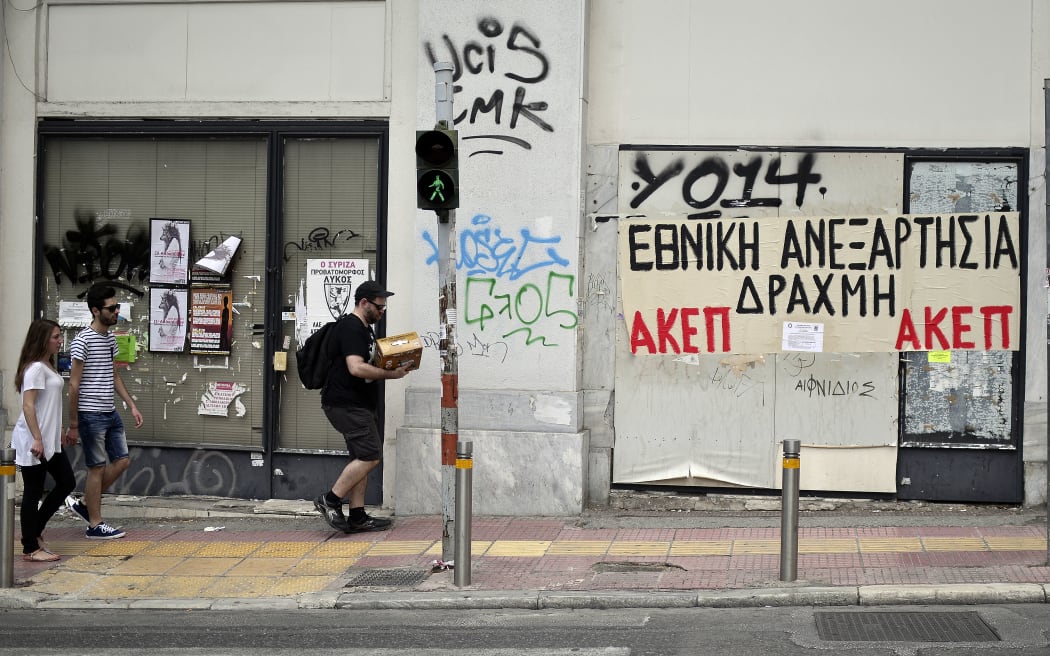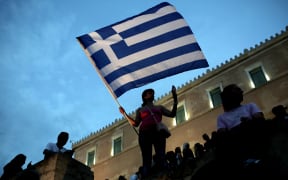Greece and its international creditors remain in deadlock over its debt crisis despite a series of top-level meetings.

People walk past closed businesses in central Athens. Photo: AFP
Prime Minister Alexis Tsipras failed to reach a deal with Greece's lenders, then a meeting of European finance ministers broke up without progress.
The Athens government faces default if it fails to make a €1.6 billion IMF debt repayment by Tuesday.
As EU leaders met in Brussels, Germany's Angela Merkel warned that talks were going nowhere.
"We still haven't made the necessary progress; in some places it looks like we're even going backwards," she told reporters.
If Greece does default, it could exit the eurozone, with possible repercussions for the rest of Europe and the world economy.
Only once agreement is reached will the European Commission, the European Central Bank (ECB) and the International Monetary Fund (IMF) unlock the final €7.2 billion tranche of bailout funds for cash-strapped Greece.
The impasse threatens to overshadow an EU summit opening on Thursday(local time), where leaders will also discuss the European migrant crisis and UK PM David Cameron's renegotiation aims.
After the meeting of finance ministers broke up without agreement, Eurogroup head Jeroen Dijsselbloem said it was not too late for Greece to accept the proposals of its international lenders.
It was the fourth time that the finance ministers had met in a week in an attempt to prevent a Greek debt default. They will meet again this weekend.
An EU diplomat told the BBC that the Eurogroup had to make a decision then - yes or no.
The Greek government has criticised the international creditors for rejecting its own ideas, which were initially welcomed.
IMF head Christine Lagarde said the lenders had been presented with a counter-proposal by the Greek parties "at the last hour" and needed more time to assess it, according to Reuters.
The IMF has been particularly strong in refusing to accept Greece's proposals put forward earlier this week.
Correspondents say the Greek plan included far more tax rises and far fewer spending cuts than creditors had suggested.
-BBC




